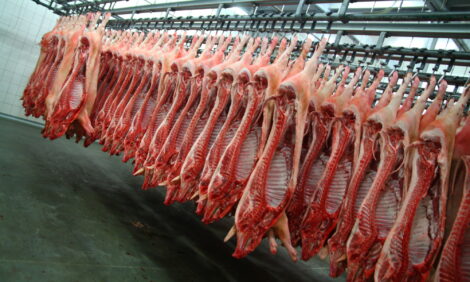



Digestibility of Energy, Fibre and Metabolisable Energy Value of Rapeseed Meals for Growing Pigs
Comparing different rapeseed meals for growing pigs, University of Illinois research reveals that canola meal and double-zero rapeseed meal had similar energy and digestibility values, while double-zero rapeseed expeller meal was more digestible and had a higher energy content than the other two products.There are limited data on the digestible energy (DE) and metabolisable energy (ME) values and the digestibility of fibre in canola meal, rapeseed meal and rapeseed expellers fed to pigs, according to Professor Hans Stein and colleagues at the University of Illinois Urbana.
They conducted this experiment, described in a paper published in the Journal of Animal Science, to measure the apparent total tract digestibility (ATTD) of energy, acid detergent fibre (ADF) and neutral detergent fibre (NDF) and to calculate digestible energy (DE) and metabolisable energy (ME) values in canola meal, 00-rapeseed meal and 00-rapeseed expellers fed to growing pigs.
Twenty-three barrows (initial bodyweight 27.7±2.92kg) were allotted to an 8×23 Youden square design with eight periods and 23 animals.
Twenty-three diets were prepared: a corn basal diet and 22 diets based on corn and one of 22 test ingredients.
The test ingredients were six canola meals from solvent-extraction crushing plants in North America, 11 00-rapeseed meals from solvent-extraction crushing plants in Europe and five 00-rapeseed expellers from mechanical-press crushing plants in Europe.
Pigs were placed in metabolism cages that allowed for the total, but separate, collection of faeces and urine.
The DE and ME values were calculated for each source of canola meal, 00-rapeseed meal and 00-rapeseed expellers using the difference procedure.
The ATTD of GE and the DE and ME values in canola meal were not different from the values in 00-rapeseed meal but 00-rapeseed expellers had greater (P<0.01) ATTD of GE and DE and ME values than 00-rapeseed meal.
Average DE and ME values were 3,378 and 3,127kcal per kg dry matter (DM) in canola meal, 3,461 and 3,168kcal per kg DM in 00-rapeseed and 4,005 and 3,691kcal per kg DM in 00-rapeseed expellers.
The ATTD of ADF was 12.3 per cent greater (P<0.01) in 00-rapeseed meal than in canola meal, but no differences were observed in ATTD of NDF between canola meal and 00-rapeseed meal.
No differences were observed in ATTD of ADF and NDF between 00-rapeseed meal and 00-rapeseed expellers.
The models for predicting the DE and ME values of canola and rapeseed products were:
DE = –1,583 + 6.64 × ash + 7.01 × ADF – 33.17 × NDF + 98.66 × ADL + 1.07 × GE (R2=0.94) and
ME = –630.8 + 14.13 × ash + 5.02 × crude fibre + 3.45 × ADF + 1.03 × DE (R2=0.98).
Stein and colleagues concluded that the digestibility of energy and NDF and the DE and ME values are not different between canola meal and 00-rapeseed meal.
However, they added, 00-rapeseed expellers have higher energy digestibility and contain 7.6 per cent more DE and 7.7 per cent more ME than 00-rapeseed meal.
Reference
Maison T., Y. Liu and H.H. Stein. 2015. Digestibility of energy and detergent fiber and digestible and metabolizable energy values in canola meal, 00-rapeseed meal, and 00-rapeseed expellers fed to growing pigs. J. Anim. Sci. 93:652-660.
March 2015








